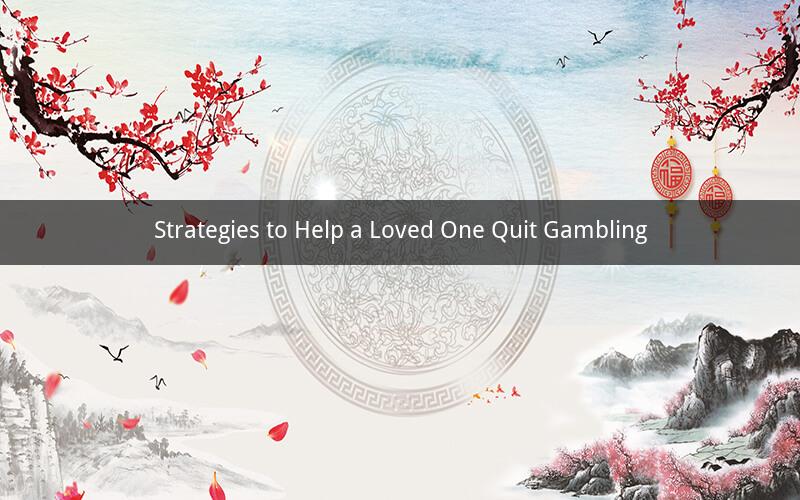
Introduction:
Gambling addiction is a serious issue that can negatively impact an individual's life and relationships. If you have a loved one who is struggling with gambling, it can be challenging to know how to help them stop. This article explores various strategies to assist someone in overcoming their gambling addiction.
1. Educate Yourself About Gambling Addiction
Understanding the nature of gambling addiction is crucial in helping your loved one quit. Familiarize yourself with the signs, symptoms, and consequences of gambling addiction. This knowledge will enable you to approach the situation with empathy and support.
2. Open Communication
Create a safe and supportive environment where your loved one feels comfortable discussing their gambling problems. Encourage open and honest communication, and listen actively without judgment. Avoid lectures or confrontations, as these can worsen the situation.
3. Encourage Professional Help
Suggest that your loved one seek professional help from a therapist or counselor specializing in gambling addiction. Therapy can provide personalized strategies and coping mechanisms to overcome their addiction. Offer to accompany them to appointments if they feel comfortable.
4. Financial Support
One of the most significant challenges faced by individuals with gambling addiction is managing their finances. Encourage your loved one to seek financial counseling to address their financial issues. Offer to assist in creating a budget or help them find additional income sources.
5. Develop a Support System
Encourage your loved one to surround themselves with a supportive network of friends, family, and peers who understand their struggles. Joining a gambling addiction support group can provide a sense of community and mutual understanding.
6. Establish Clear Boundaries
Set clear boundaries to protect your loved one from triggering situations that may lead to relapse. This may involve limiting their access to gambling venues or removing credit cards associated with their gambling activities.
7. Celebrate Progress
Recognize and celebrate the small victories along the journey to recovery. Acknowledge the efforts made by your loved one, even if the progress seems slow. Positive reinforcement can help maintain motivation and encourage continued progress.
8. Be Patient and Understanding
Recovery from gambling addiction is a long-term process that requires patience and understanding. Avoid becoming discouraged or frustrated if progress seems slow. Remind your loved one that setbacks are a part of the process and encourage them to keep trying.
9. Educate Yourself About Self-Care
Take care of yourself while supporting your loved one. Seek support from friends, family, or professionals if you feel overwhelmed. Remember that taking care of yourself is crucial in providing effective support to your loved one.
10. Encourage Healthy Coping Mechanisms
Help your loved one develop healthy coping mechanisms to deal with stress or boredom, which may be triggers for relapse. Encourage them to engage in activities they enjoy, such as exercise, hobbies, or socializing with friends and family.
Questions and Answers:
1. What are the signs of gambling addiction?
Ans: Signs of gambling addiction include a preoccupation with gambling, lying about gambling activities, feeling restless or irritable when unable to gamble, chasing losses, and borrowing money to gamble.
2. How can I help my loved one recognize they have a problem?
Ans: Encourage open communication and express your concerns without judgment. Offer support and suggest professional help to help them acknowledge their gambling problem.
3. What should I do if my loved one refuses to seek help?
Ans: Continue offering support and empathy, but be prepared for resistance. It may be helpful to seek advice from a therapist or counselor specializing in gambling addiction to understand how to handle the situation.
4. How can I help my loved one manage their finances during recovery?
Ans: Encourage them to seek financial counseling and offer to assist in creating a budget. Help them find additional income sources or explore debt management options if necessary.
5. What can I do if my loved one relapses after making progress in recovery?
Ans: Understand that relapse is a part of the recovery process. Encourage your loved one to learn from the experience and continue seeking support. Remain patient and understanding throughout their journey.